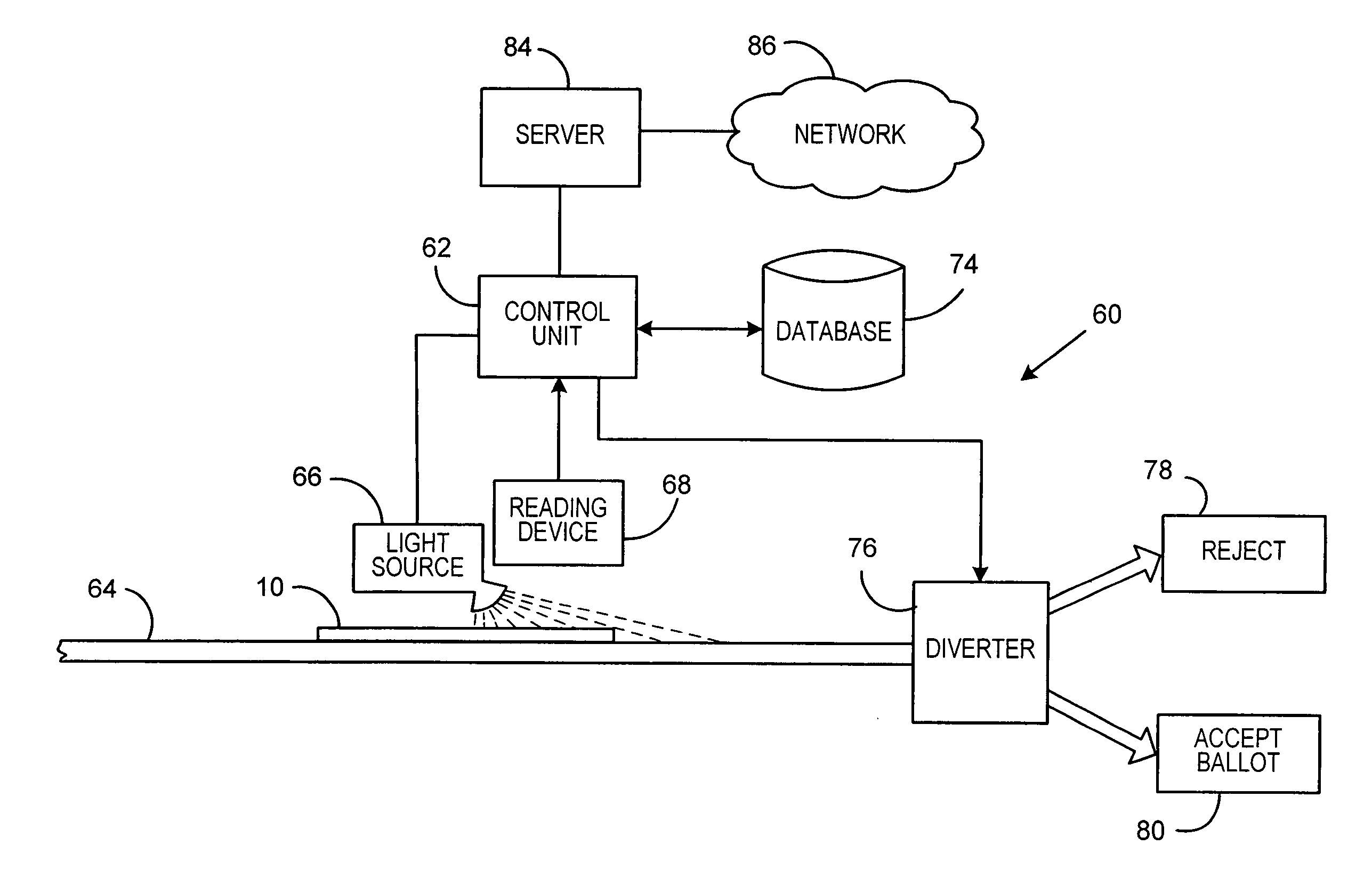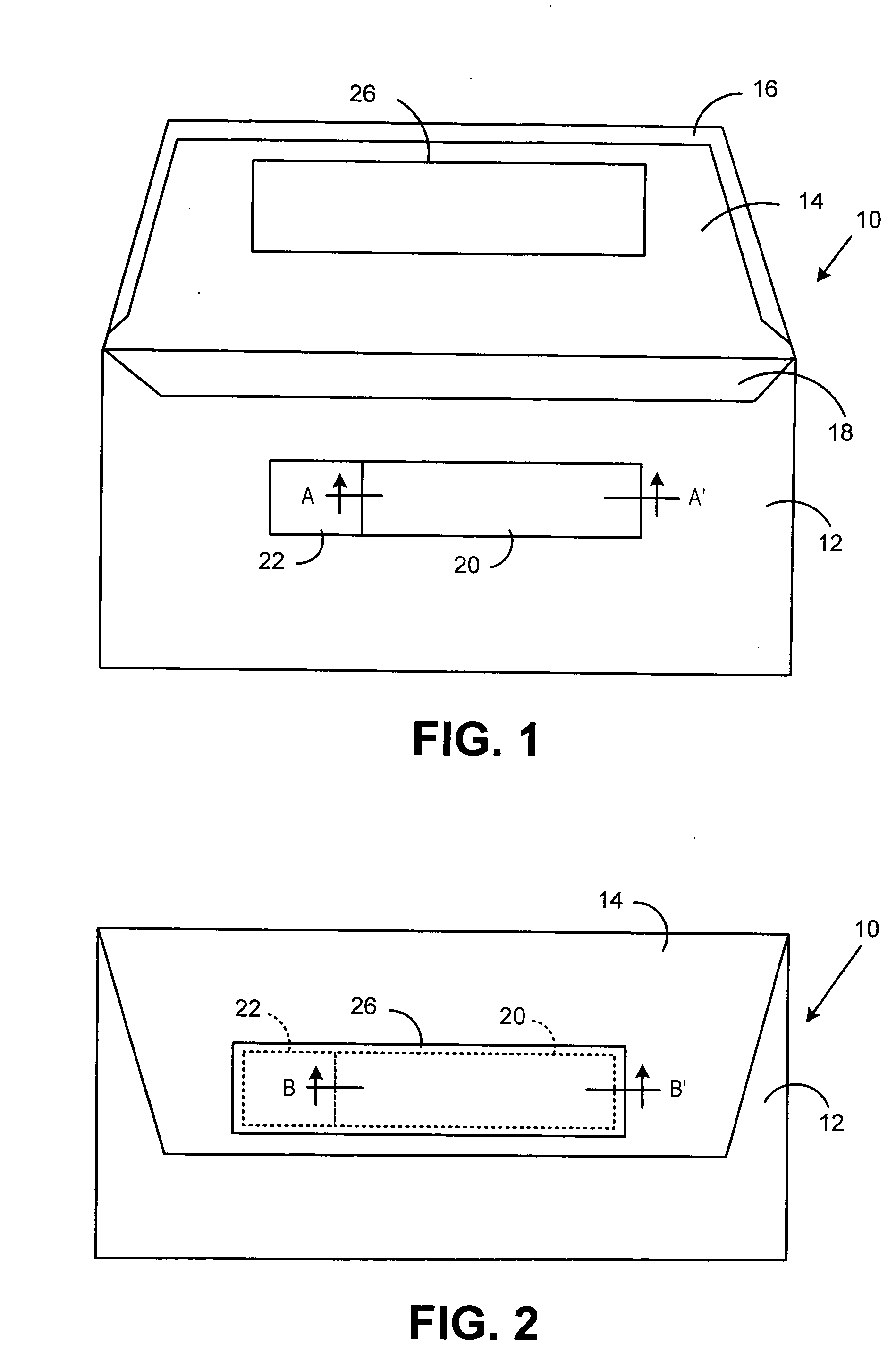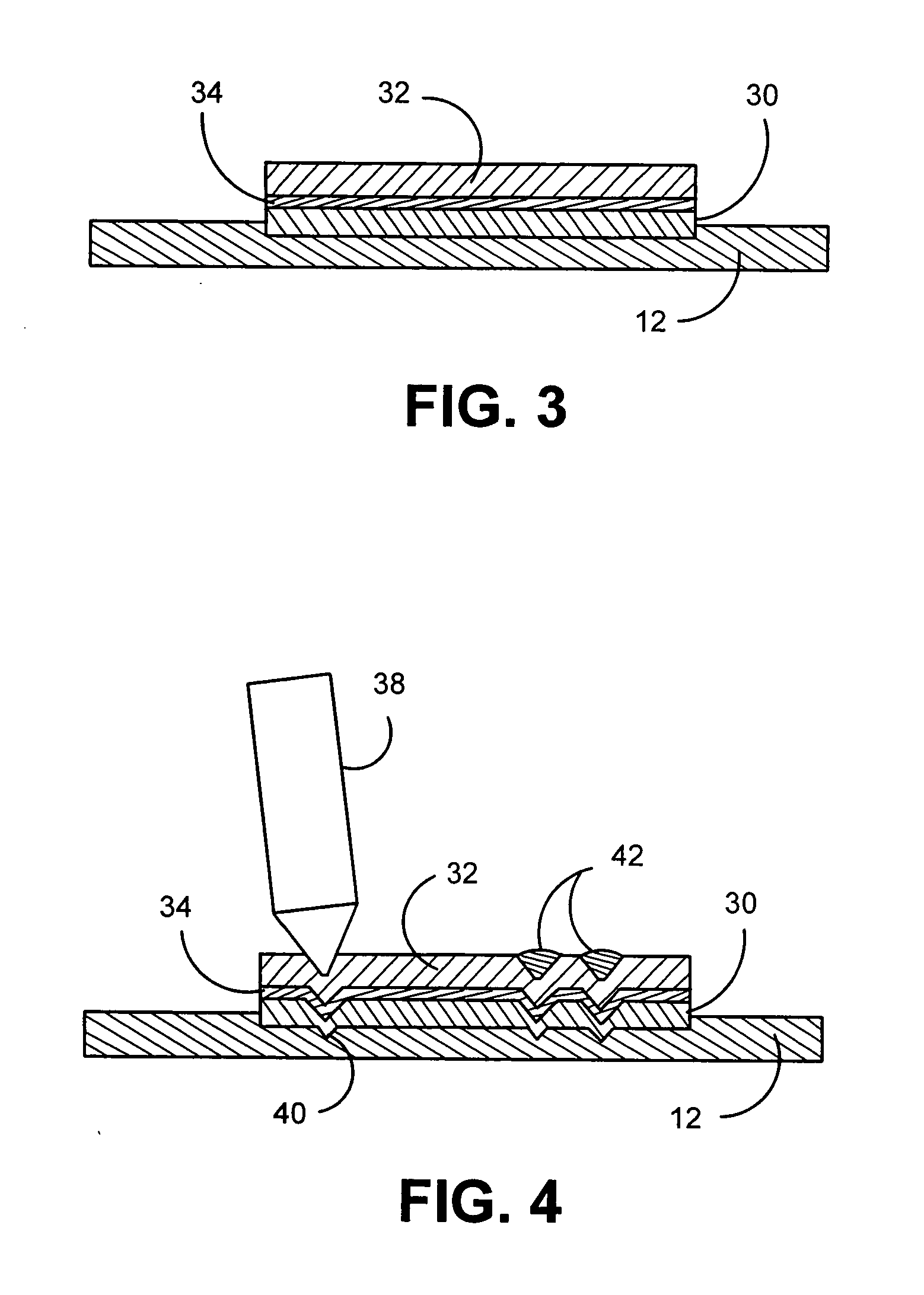Method and system for protecting privacy of signatures on mail ballots
a technology for protecting the privacy of signatures and mail ballots, applied in the field of voting systems, can solve the problems of increasing the risk of accidental tear of envelopes, increasing the risk of envelope damage, and causing damage to ballots contained in envelopes, so as to reduce the risk of causing damage to ballots
- Summary
- Abstract
- Description
- Claims
- Application Information
AI Technical Summary
Benefits of technology
Problems solved by technology
Method used
Image
Examples
Embodiment Construction
[0025]In describing the present invention, reference is made to the drawings, wherein there is seen in FIG. 1 an envelope 10 for returning ballots by mail according to an embodiment of the present invention in an open position. While the present description is directed to an envelope for returning ballots by mail, it should be understood that the invention is not so limited and the envelope 10 could be used to hold any type of communication or material. Envelope 10 includes a body portion 12 and a flap portion 14 connected to the body portion 12. When the flap portion 14 is in an open position as illustrated in FIG. 1, contents, such as, for example, a ballot, can be inserted into a pocket 18 formed by the body portion 12. The flap portion 14 can then be moved to a closed position (as illustrated in FIG. 2), and sealed utilizing a glue or sealing strip 16 which when activated will adhere the flap portion 14 to the body portion 12, thereby covering the pocket 18 and preventing the co...
PUM
 Login to View More
Login to View More Abstract
Description
Claims
Application Information
 Login to View More
Login to View More - R&D
- Intellectual Property
- Life Sciences
- Materials
- Tech Scout
- Unparalleled Data Quality
- Higher Quality Content
- 60% Fewer Hallucinations
Browse by: Latest US Patents, China's latest patents, Technical Efficacy Thesaurus, Application Domain, Technology Topic, Popular Technical Reports.
© 2025 PatSnap. All rights reserved.Legal|Privacy policy|Modern Slavery Act Transparency Statement|Sitemap|About US| Contact US: help@patsnap.com



